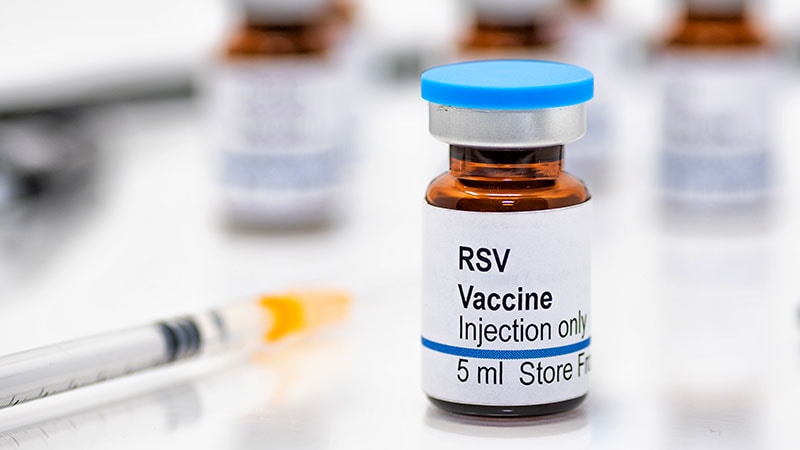The prescribing information for two respiratory syncytial virus (RSV) vaccines will now include a warning for the increased risk for Guillain-Barré Syndrome (GBS) within 42 days of vaccination based on data from postmarketing research, according to a safety communication from the US Food and Drug Administration (FDA).
Concerns about GBS arose during the review of safety data from clinical trials prior to the approval of Abrysvo (manufactured by Pfizer) and Arexvy (manufactured by GlaxoSmithKline), according to the FDA communication. Based on these findings, the FDA required the manufacturers to conduct additional studies to assess GBS as a condition of approval.
The postmarketing study involved Medicare claims data from May 2023 through July 2024, using a risk window of 1-42 days after vaccination and a control window of 43-90 days after vaccination.
“The analyses of all GBS cases based on claims data suggest an increased risk of GBS during the 42 days following vaccination, with an estimated nine excess cases of GBS per million doses of Abrysvo, and an estimated seven excess cases of GBS per million doses of Arexvy administered to individuals 65 years of age and older,” according to the FDA.
Based on these findings, the FDA has determined that the evidence is insufficient to prove causality, and that the benefits of the two vaccines currently outweigh the risks. However, monitoring and safety assessment are ongoing, according to the communication.
Abrysvo was first approved on May 31, 2023, for prevention of lower respiratory tract disease (LRTD) associated with RSV in adults aged 60 years or more, and has since been approved for the same indication for adults aged 18-59 years. Abrysvo also has been approved for the immunization of pregnant women at 32 through 36 weeks gestational age to prevent LRTD and to prevent severe LRTD from RSV in infants from birth through age 6 months. The clinical trials described a case of GBS and a case of the GBS variant known as Miller-Fisher syndrome that occurred at 7 and 8 days, respectively, after vaccination.
Arexvy was initially approved on May 3, 2023, for prevention of LRTD associated with RSV in adults aged 60 years or more, and has since been approved for the same indication in adults aged 50-59 years. The clinical trials for Arexvy described one case of GBS that occurred 9 days after vaccination.
Any suspected adverse events related to Abrysvo or Arexvy may be reported to the Vaccine Adverse Event Reporting System.
Clinical Considerations
“There is still uncertainty regarding the amount of increased GBS risk associated with these vaccines, and whether any specific factors may increase the risk,” said Shirin A. Mazumder, MD, associate professor and infectious disease specialist at The University of Tennessee Health Science Center, Memphis, in an interview.
Postmarketing research is important because the RSV vaccines are still relatively new, and ongoing surveillance and tracking to assess the risk for GBS and other side effects are necessary for a complete picture of the safety profile for these vaccines, she said.
The message for clinicians in practice is that the benefits of the RSV vaccine outweigh the small risk for GBS, “but it is a discussion that should be held with the patient,” said Mazumder, was not involved in trials of the vaccines. Current data support the safety and effectiveness of RSV vaccines to prevent LRTD caused by the virus, and the CDC continues to recommend RSV vaccination for adults aged more than 75 years and for those aged 60-74 years who are at an increased risk for severe disease, she said.
The current evidence is insufficient to demonstrate a causal relationship between GBS either of the vaccines, and more data are needed, Mazumder told Medscape Medical News. “Also, further research is needed to determine any additional factors that may increase the risk of GBS in those receiving the RSV vaccine,” she said. No cases of GBS have been reported to date associated with mResvia, the RSV vaccine from Moderna that was licensed in 2024; however, “vaccine safety monitoring programs are critical to gain more information to make the most appropriate preventative health recommendations,” Mazumder said.
Mazumder had no financial conflicts to disclose.
Source link : https://www.medscape.com/viewarticle/rsv-vaccines-will-carry-warning-guillain-barre-syndrome-2025a10001ia?src=rss
Author :
Publish date : 2025-01-22 12:46:58
Copyright for syndicated content belongs to the linked Source.
